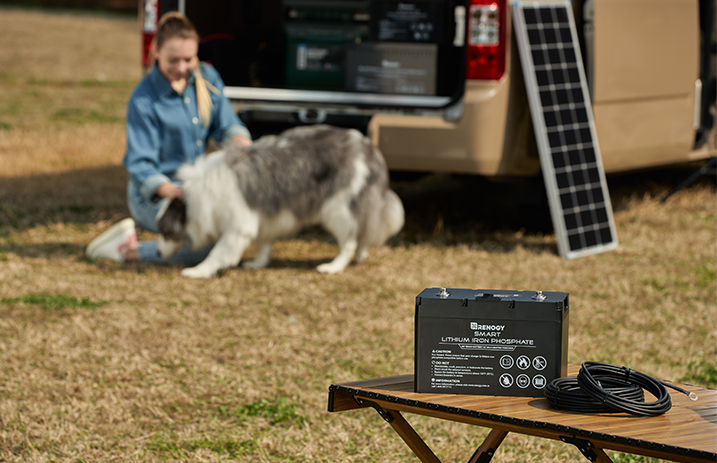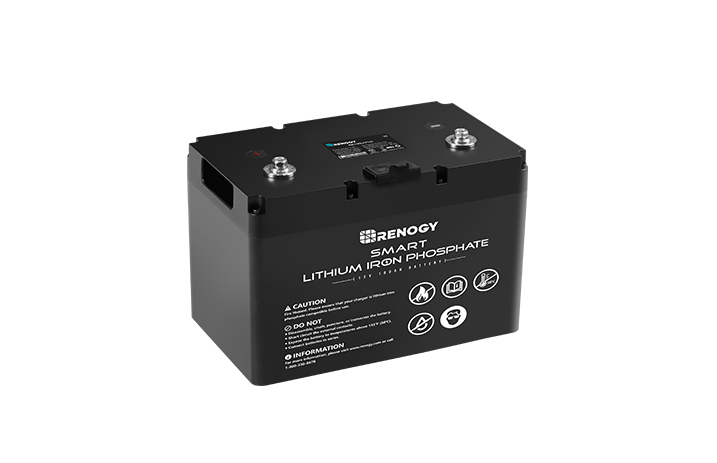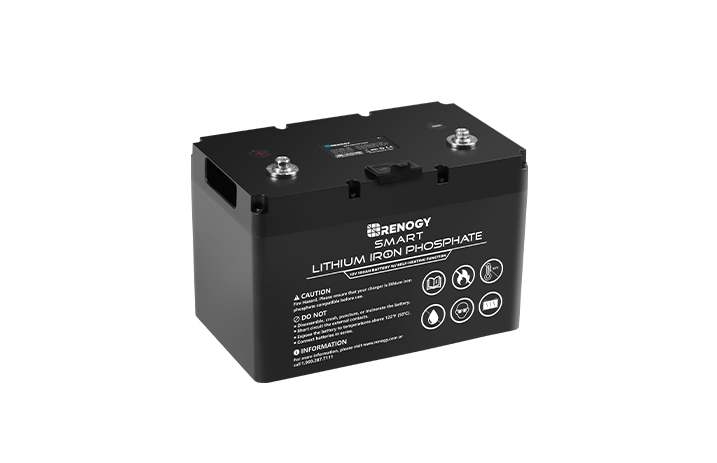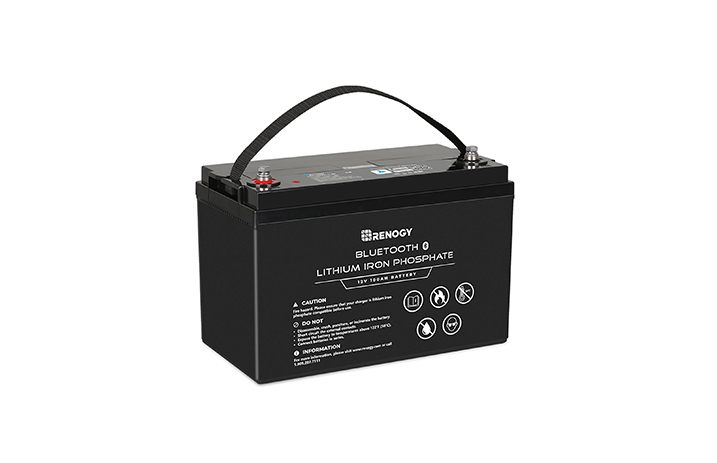Buy Lithium Solar Batteries in 2022: How To Choose A LiFePO4 Battery
More and more people are opting for off grid solar power generation, and at the heart of the system is the solar batteries. Deepcycle batteries can provide continuous power, making them ideal for applications that require a quick start-up, of these, lithiumion batteries are a relatively new option in solar energy systems which include lithium iron phosphate, ternary lithium, lithium manganate, lithium polymer battery and etc. The LiFePO4 batteries are the mainstream choice of energy storage and are often used in backup systems and solar battery banks.
BENEFITS OF LITHIUM SOLAR BATTERIES
LiFePO4 batteries (or the LFP battery) are a premium storage option that is safe and durable and can be paired with solar energy systems to store excess energy. They are now the storage medium of choice in most solar applications due to their long lifetime, safety,cost-effectiveness, and low maintenance requirements. They are particularly appealing to boat, van, and RV owners.
1. Light and Compact
Energy density is the amount of electricity a battery can hold relative to its physical size. The higher the energy density, the more energy can be stored, whereas lower energy density means less available power and more weight. The lithium ion battery for solar is high density and so can store lots of power while taking up minimal space, which is great when space is at a premium. For example, a 100Ah battery of the same capacity of Renogy, the weight of lithium iron phosphate battery is 40% of that of lead-acid battery.
2. Safety and Stability
LiFePO4 batteries have one key advantage over other batteries: excellent thermal and chemical stability, which translates to improved safety. For example, lithium cobalt oxide and lithium manganate will explode in violent collisions, posing a threat to life; however, lithium iron phosphate has passed strict safety tests, which means that even if an accident occurs, there will be no explosion.
3. BMS
Every LiFePO4battery has a built-in battery management system (BMS) that automatically monitors things like battery temperature, state of charge, and cycle life to maximize battery performance. And if your electricity demand increases, you can expand the system hassle free, by connecting more batteries in parallel, each of which will be managed by its own internal BMS, operating independently and safely.
4.
Reliable and Stable Power
Solar lithium batteries can also provide better quality and more constant voltage at any discharge rate. Constant voltage does not fluctuate over time: For example, lights will keep the same brightness throughout each usage period of the battery.
5. Low Self-Discharge Rate
When the lithium ion solar battery is not connected to the load and power supply, the energy may still gradually drop, which is known as self-discharge, or charge retention capacity. The self-discharge rate of lithium solar batteries is very low, generally only reaching 3% per month.
6. Environmentally Friendly
Li-ion batteries have low levels of toxic heavy metals compared to other batteries like lead-acid and nickel-cadmium (NiCd) batteries. Cadmium, lead, and mercury have been major components of batteries for many years, but improper handling and exposure to these metals can harm humans, animals, and plants. Lithiumbatteries for solar are safer than many other kinds, although still do need to be recycled properly: Never dispose of used batteries in general trash!
7. Maintenance-Free
Many types of batteries require a periodic “balancing” process to ensure that all batteries are charged equally. Lithium solar batteries manage their status through BMS, so they don’t need to be periodically “balancing”.
Compared with other types of batteries, lifepo4 batteries have no special requirements for storage. They don’t need to be stored upright or in any vented battery compartment. For long-term storage, it is recommended to charge the battery every six months to avoid low battery power.
8. Memory Effect
The memory effect is an effect of the internal crystallization of the battery due to use, which will temporarily reduce the capacity of the battery and shorten the use time. This usually happens with NiCd batteries, but lithiumion batteries do not suffer from this memory effect, so they always run out of the last bit of charge. Whether using 100% or 25% capacity, you can charge them without tedious maintenance.

How To Choose LiFePO4 Batteries
When considering solar cell options, you need to compare different lithium batteries based on capacity, depth of discharge (DOD), battery life, and more to find the best battery for your PV system based on your needs.
1. Capacity
Capacity is the total amount of electricity that a solar cell can store. This data is usually measured in watt-hours (Wh) or kilowatt-hours (kWh).
2. Depth of Discharge (DOD)
The depth of discharge (DOD) indicates the battery capacity used. The higher the DOD, the more usage you get from the battery capacity. Most solar batteries come with a recommended DOD to keep the battery healthy. Lithium ion batteries are deepcycle batteries and have up to 100% DOD, meaning you can use more of the energy stored in lithium-ion batteries without recharging as often as you would with other batteries. This also gives them a long service life and capacity is 25-50% higher than similar lead acids.
3. Cycle Life
Cycle life is the number of charge and discharge cycles that a battery can complete before it loses performance. Lithium iron phosphate batteries have more than 2000 cycles, while lead-acid batteries typically only reach between 500 and 1200 cycles. Assuming that one cycle is used each day, then a battery with a cycle life of 2000 retains its performance for five and a half years; a battery that boasts 4000 cycles can be used for more than ten years.
4. Continuous Charging and Discharging Rate
The charge-discharge rate refers to the constant current value output by the battery, when it is charged from an empty state to a fully charged state or discharged from a fully charged state to an empty state, within a specified time. For example, the Renogy 12V 100Ah Smart Lithium Iron Phosphate Battery has a rated capacity of 100Ah and can be discharged for 1 hour at a 100A discharge current, known as 1C discharge. Additionally, the Renogy 12V 100Ah Smart Lithium Iron Phosphate battery with a self-heating function will automatically start running when the battery temperature drops below 41°F (5°C) while charging to ensure excellent battery performance.
5. Battery Life and Warranty
If you’ve owned a laptop or smartphone for a few years, you’ve probably noticed that the battery doesn’t last as long in the years after that as it did when it first started. As each charge and discharge cycle progresses, the battery’s ability to remain charged decreases. Temperature can also affect battery life. High temperatures mean faster reactions, so batteries discharge faster; low temperatures mean batteries have to work harder and charge at higher voltages.
Most batteries come with a warranty that guarantees the battery over a certain number of cycles or for a specified period. Like panels, inverters, or other solar equipment, choosing a well-known manufacturer with a long history is the safest option, as they are more likely to deliver on these promises.
Renogy Solar Batteries for Sale
Renogy has been a key player over the last decade as demand for quality renewable energy solutions has been booming. We never stop innovating because we know how much clean energy means. At Renogy, we offer a wide range of solar products, such as solar panels, deep cycle batteries, inverters, solar generators, portable power stations, charge controllers, etc. Join us in creating a truly sustainable future!
12V 100Ah Smart Lithium Iron Phosphate Battery

The Renogy 12V 100Ah Smart Lithium Iron Phosphate Battery allows for auto-balancing of parallel connections and additional battery connection options. LiFePO4 batteries are protected by an integrated smart battery management system (BMS), which also monitors and manages the charging and draining process. A long cycle life and superior discharge performance are ensured by state-of-the-art battery cells.
12V 100Ah Smart Lithium Iron Phosphate Battery With Self-Heating Function

Renogy’s 12V 100Ah Smart Lithium Iron Phosphate Battery with Self-Heating Function combats the cold by warming itself up when the battery temperature dips below 41°F (5°C) and it’s attached to the input. Long cycle life and superior discharge performance are ensured by the integrated intelligent BMS, state-of-the-art battery cells, and self-heating capability.
12V 100Ah Lithium Iron Phosphate Battery With Bluetooth

A built-in Bluetooth module allows for real-time remote monitoring on mobile devices with the Renogy 12V 100Ah Smart Lithium Iron Phosphate Battery with Bluetooth. It’s made with automotive-grade battery cells and has a long cycle life under a variety of loads. The sophisticated BMS ensures that the battery is well-protected. Because it is a standard BCI group size, it is an excellent replacement for deep-cycle lead-acid batteries.
Here are a few dos and don’ts to keep your Li-Ion batteries alive longer:
a. Avoid being exposed to extreme temperatures
b. Store the batteries at moderate energy during off-hour
c. Disconnect the battery from your equipment if the battery is not used for a long time.






